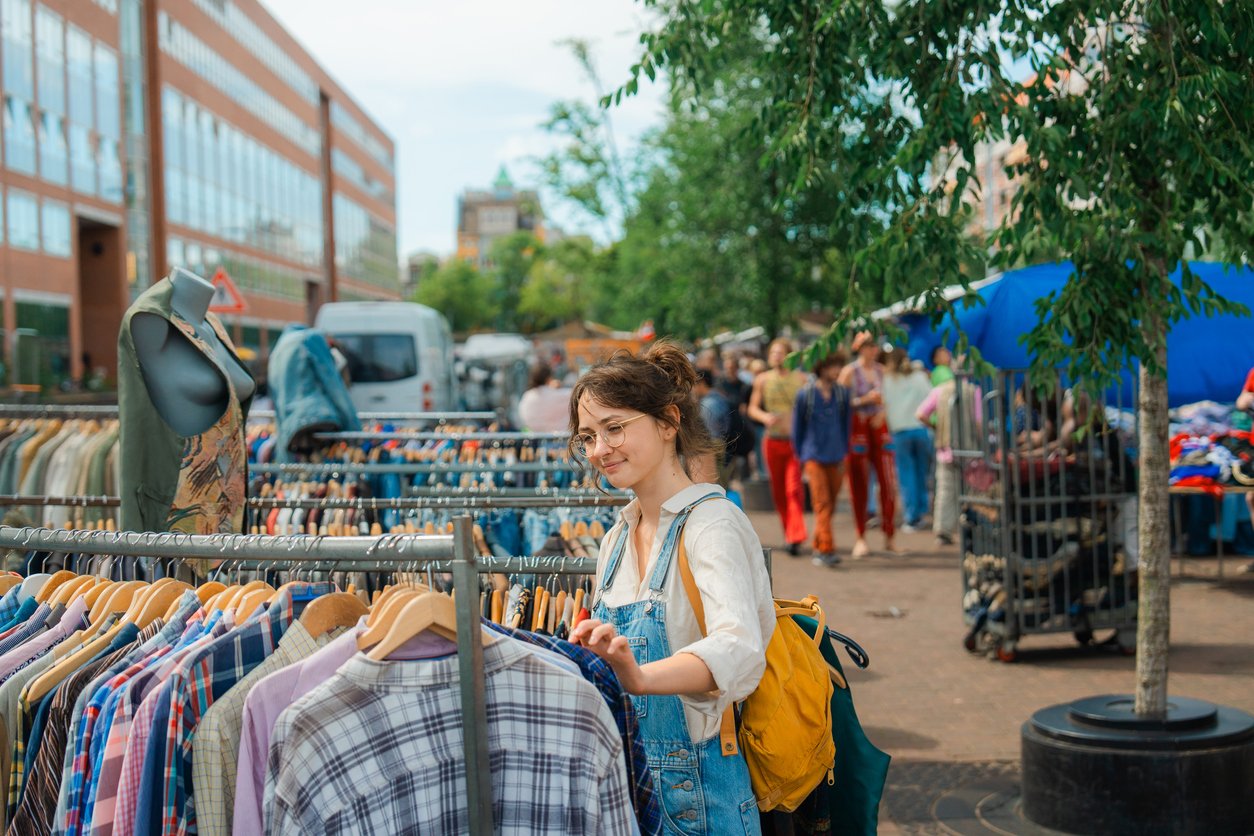Gen Z has already earned a reputation for flipping the script on consumer habits and lifestyle choices. The younger generation is investing earlier and more widely than previous generations, prioritizes sustainability and brand ethics, and has learned to adapt in an ever-shifting digital and political landscape.
The first generation to grow up entirely with technology, spend high school navigating online schooling during a global pandemic, and have 24-hour access to breaking news and international political tensions, Gen Z has vastly different priorities and ideologies that also affect their spending habits and preferences.
Although Gen Z is still on the cusp of adulthood, the generation has entered the workforce and is spending differently than even their millennial counterparts. The spending power of Gen Z will continue to shift the global narrative, but we’re already seeing a distinct shift in what they’re buying and what they’re deciding to forego.
Here are 11 things you should never buy, according to the shift in Gen Z spending habits and virtues.
Real Estate

Although Gen Z is making its way onto the property ladder, research by home insurance company Kin found that nearly half — 42 percent — of Gen Z homeowners have admitted to regretting purchasing a property which is 27 percent higher than millennials and Gen X. The younger generation is finding that renting over buying causes less stress and frees up more capital to invest their in other ways, such as the stock market or crypto.
A Bachelor’s Degree

Studies have shown that a higher percentage of Gen Z students are opting to forego a traditional bachelor’s degree in favor of trade-based schooling and practical, hands-on higher education options. Further reports have noted that more than 60 percent of Gen Z students are open to educational options beyond traditional college or university institutions.
Alcoholic Beverages

Studies have shown that Gen Z drinks 20% less alcohol per capita than their millennial counterparts, with a steady decline in drinking particularly noted across Europe, the United States, Australia, and New Zealand. The economy may be partially to blame for this shift in drinking habits. Still, researchers have noted that it’s likely because the health risks involved in regular alcohol consumption are much more widely known than they were in the past.
Full Price Clothing

In an interview with Business Insider, Jason Dorsey, a Gen Z consultant and researcher, explained that Gen Z doesn’t want to pay full price for anything. The obsession with saving money means that Gen Z isn’t as committed to brand loyalty as previous generations.
Ecocart also pointed out that Gen Z is the “thriftiest generation” with 80 percent of Zoomers stating that they would be more likely to shop for secondhand items before buying new. The shifting trend is in part due to their genuine thriftiness and money-saving tendencies, but eco-consciousness also plays a role.
Luxury and Designer Goods

Gen Z isn’t opposed to buying quality items — but they’re not as attached to luxury labels as previous generations. They don’t have the same ‘keeping up with the Joneses’ mentality that older generations struggle with, and they prioritize saving over looking flashy. “I can’t afford nicer brands of clothes,” one Gen Z respondent told Business Insider. “I like to save and would rather have money in the bank than be broke.”
Trending on Cheapism
Cable and Satellite Boxes

Research found that only about one-third of Americans between the ages of 18 and 29 get their TV through cable or satellite boxes, representing a decrease of more than 31 percentage points from 2015. Gen Z, as well as millennials, prefer to consume content from streaming platforms like Netflix and Prime as well as from independent creators on YouTube.
Big Engagements and Weddings

Gen Z is forgoing over-the-top engagements and weddings at a rate significantly higher than millennials, opting instead for experiences that prioritize the couple. “I’m seeing Gen Z spend less overall on weddings compared to millennials,” floral designer Melissa Sullivan told Brides. “Many would rather invest in an unforgettable honeymoon or post-wedding experience than allocate the majority of their budget to the wedding day.”
Formal Office Attire

Although the power suit was once a requirement for working in an office, according to a report from GoBankingRates, Gen Z is opting for more casual work outfits over formal office attire. “Gen Z leans toward casual, even in business, opting for remote-friendly, comfortable wear over high-cost suits,” Seth Geftic, vice president of product marketing at Huntress Labs, told GoBankingRates. “They don’t necessarily miss out on professionalism, but they’re adapting to a new work culture.”
Sign up for our newsletter
New Cars

They say a new car depreciates as soon as you drive it off the lot — and the GoBankingRates report confirms that Gen Z consumers are really taking that warning to heart. “Boomers buy new cars,” financial expert Melanie Musson told GoBakingRates. “When you buy a new car, you absorb the most significant depreciation. Gen Z tends to look for used cars that have already experienced the majority of their depreciation.”
Flat Sheets

Gen Z tends to prefer whimsical dopamine decor when it comes to interior design — but flat sheets are something that isn’t making the cut anymore. “None of my kids use flat sheets. Two out of the three think fitted sheets are pointless, too. They prefer to roll around like a cocoon in a blanket,” explained Scary Mommy writer Katie Bingham-Smith. “They’ve told me that flat sheets ‘are dumb and a waste of time,’ which explained why I always find them wadded up on their bedroom floor.”
Cosmetics Tested on Animals

“Teens use an app called Yuka, which rates foods and cosmetics. All you do is scan the barcode on a product, and it allows you to see the health impacts of things like deodorant or a candy bar,” added Bingham-Smith. “If they discover a product is being tested on animals, they won’t purchase it or film themselves throwing it in the trash via TikTok to alert everyone to stop buying it.”
More Personal Finance Tips From Cheapism

- 10 Gen-Z Money Habits That Older Generations Could Benefit From — The younger generations tend to get a lot of flack from those who have been there before — but as it turns out, there are a lot of budgeting and frugal living habits that Gen-Z has adopted that could actually make a lot of sense for all generations.
- 50+ Things You Absolutely Never Need to Buy — From things you’ll never use to overpriced versions of items you can find for free, here’s an essential list of things you’ll never need to buy.
- 12 Things You Should Never Buy on a Vacation Abroad — From souvenirs that will ultimately disappoint to items that aren’t allowed back in the country, here’s where you can save money on your next international expedition.






